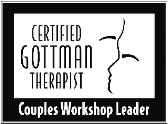Richard B. Boswell, LCSW, LLC
(314) 645-5333
Confidential | Compassionate | Focused | Responsive

Couples, Family, and Individual Therapy
Adolescents and Adults
_________________________________
Richard B. Boswell, LCSW
9506 Olive Boulevard, #408
Olivette, MO 63132
Phone: (314) 645-5333
email: richard@rbboswell.com

© 2015 - 2024 Richard B. Boswell, LCSW, L.L.C.
Call me at (314) 645-5333 to discuss your specific situation
Common Issues Requiring Therapy
Information on Depression
All of us have times when we are sad, down or experience moments of unhappiness. These feelings are unpleasant, usually temporary and a normal response to typical disappointments or losses in life. Depression, however, continues for a longer period of time. The sadness persists and can be accompanied by additional feelings of anger, anxiety, guilt or hopelessness. There may be changes in four areas of a person’s life.
Feeling sad, down or unhappy is not uncommon but there may also be other emotions that may be pronounced. You may be agitated and irritable. You may be bored, and lose interest in things that usually satisfy you.
There may be changes in how you think. It may be hard to concentrate and make decisions. Your memory may be impaired. It may be harder to accomplish your usual tasks
Your physical functioning may become affected. Sleeping and eating may be irregular and your sex drive may be diminished. You may not have as much energy as usual and you may feel tired or slowed down. Physical complaints such as headaches, abdominal pains and other aches and pains that have no physical explanation can also be part of depression.
There may be changes in your behavior as well. You may neglect your appearance, lose track of paying your bills or miss deadlines at work. You may withdraw from friends and isolate yourself. Conflicts with important people in your life may become more frequent.
The good news is that there is help for depression. With treatment, 8 out of 10 people are able to return to their usual productive lives. Common effective treatments include psychotherapy and medication. After an initial assessment of the depression and your life circumstances, appropriate treatment can be offered and improvements can be made.
Information about Stress and Anxiety
Stress and anxiety are related and often confused. Stress occurs when there is a specific event or series of events approaching and you feel tension and worry about the outcome. Anxiety is a persistent intense worry about the future and may be called fear or nervousness. Anxiety may also be used to describe the intense worry and fear that may come up during difficult periods of our life.
Anxiety shows up in moods, thoughts, behaviors and physical reactions.
• Your mood may be nervous, irritable, anxious, and or panicky.
• You may overestimate danger or underestimate your ability to
cope with the danger. You may underestimate the help that may
be available for you. You may have catastrophic thoughts about
the potential outcome.
• You may avoid situations where the anxiety may occur, or leave
situations when the anxiety begins. You may try to do things
perfectly or control events to prevent the perceived danger.
• Physical symptoms may include sweaty palms, tense muscles, a
racing heart, flushed cheeks, lightheadedness, tunnel vision,
dizziness or trouble breathing.
All of these symptoms are part of the fight, flight, or freeze response to danger. When in true danger we use these physiological changes to keep ourselves safe. We use the same changes to deal with emotional events that are overwhelming for us or ones that we do not feel able to cope with.
Again, the good news is that with the help of cognitive behavioral and insight-oriented therapy 8 out of 10 people can make significant improvements in their lives. You can learn to mange the anxiety, not have it manage you.
Information about Bipolar Disorder
The key characteristic of bipolar disorder is extreme mood swings from manic highs to severe depression. It affects an individual’s experience of emotion and the way a person conveys their emotion to others. The shifting in mood can happen very quickly for some and slowly for others.
In the manic or high state, you may experience combinations of excessive happiness or expansiveness, excessive anger or irritability, a decreased need for sleep, an inflated sense of your abilities, increased talkativeness, racing thoughts or jumping from one idea to another, an increase in activity and energy level, and impulsive or reckless behavior.
This may alternate with times when you become depressed, where you lose interest in things you usually enjoy, lose or gain weight, feel fatigued, feel guilty, feel badly about yourself, have trouble concentrating or making decisions and may feel that life is not worth living.
There is effective treatment for bipolar disorder that includes medication to help with the mood stabilization, Cognitive Behavioral Therapy to help with managing the mood swings, and additional education about self-care techniques that help keep the disorder from controlling your life.